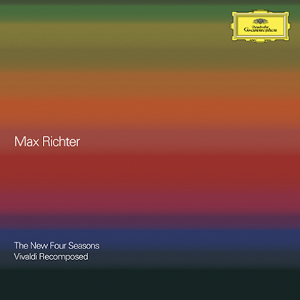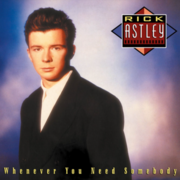New York, NY (Top40 Charts) A decade on from the release of his mesmerizing Recomposed album, trailblazing composer Max Richter returns to the sound world of Vivaldi's Four Seasons. Recorded with violinist Elena Urioste and the musicians of Chineke! Orchestra, The New Four Seasons sees Richter create a new version of his Recomposed score for period instruments - using gut strings and vintage synthesizers to create a "grittier, more punk rock sound." The new album will be released by Deutsche Grammophon on June 10, 2022, preceded by taster tracks including 'Spring 1' which is out today (listen below)
Released in summer 2012, Richter's genre-defining recomposition of a Baroque masterpiece topped the classical charts in 22 countries. Taking a work he had once loved but which he felt had lost its impact through overexposure, the composer embarked on what he has referred to as "a personal salvage mission" and wove Vivaldi's musical DNA into something fresh and exciting. His global best-seller has amassed over 450 million streams including 110 million streams for 'Spring 1,' as Richter's overall career streams continue to grow to over 3 billion.
Recomposed continues to attract new listeners through its use in the soundtracks of hit TV series including Bridgerton and The Crown, which together saw streams for 'Spring 1' triple after the shows aired. It has also been featured in My Brilliant Friend, Chef's Table, Orphan
Black and The Current War. It is a frequent choice for concert repertoire in venues around the world, not to mention a favorite of dancers, ice skaters, actors, filmmakers, fashion designers and more. 'Spring 1' is a personal favorite of Olympic swimmer Adam Peaty, as well as
Christine & The Queens who described it as "the best song ever to fall in love to" and
Diddy who called it his "theme music."
Having performed Recomposed live many times in the last decade, Richter was inspired by a special rendition of the work on period instruments to take "a new trip through the text using Vivaldi's own colors". The New Four Seasons applies a Baroque palette to the score in which he transforms or subverts fragments from the original four violin concertos by refracting them through different musical prisms, spinning them into different shapes and colors and enveloping them in completely different orchestral settings.
Richter has revisited the electronics too, here opting for Moog synths from the 70s - "the equivalent of the Stradivarius." Asked about the difference in sound between modern and period strings, he laughs: "I heard someone say it's the difference between smooth peanut butter and crunchy peanut butter, which encapsulates it really well!"
Chineke! Orchestra collaborated with Richter on the album, having previously worked together on a performance of his score Waltz with Bashir in 2018. Founded by Chi-chi Nwanoku OBE in 2015, Chineke! is Europe's first majority
Black and ethnically diverse orchestra. Chineke! champions change and celebrates diversity in classical music and has become, in Richter's words, "a beacon, lighting the way within classical music for how an ensemble can reflect the reality of the world we're living in." Completing the team was young violinist Elena Urioste, who had played with Chineke! before and was quite simply, says Richter, "an obvious fit."
Chi-chi Nwanoku OBE, Founder and Artistic & Executive
Director of Chineke! Foundation, says: "For Max to go to a modern group and ask us to play on gut strings adds an extra dimension of curiosity, of adventure, of exploration." Not used to period instruments, Urioste and Chineke! prepared for the recording with workshops in London led by Nwanoku and Baroque specialists Bojan Čičić,
David Bates and Davina Clarke. The musicians were taught how to wield the lighter Baroque bows and attach and wind on gut strings, as well as familiarizing themselves with a different quality of sound.
The learning process continued at Richter's newly-built Oxfordshire studio complex founded by the composer and his partner, the artist
Yulia Mahr. Composer and players worked in close collaboration, without a conductor, discussing all aspects of the music, from Baroque instrumental technique to the language and storytelling involved in Vivaldi's original. Richter's new version, explains Nwanoku, "is still the same tale - it's just about bringing that 21st-century twist to it."
Delighted with the results of the first recording sessions in his new studio, Richter was full of admiration for the musicians. "Chineke! is a young band and because of that you feel like you're working with the future," he says. As for Urioste, "It was amazing watching her find her own way to make the music speak. She's absolutely brilliant."
Urioste herself summed up the spirit of the sessions: "It's rare that a project with so many people involved has such an incredible level of commitment. And the music-making has felt just so organic and lovely and warm and all the things you hope for in a project."
























